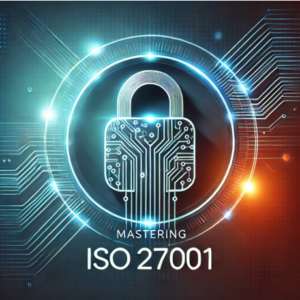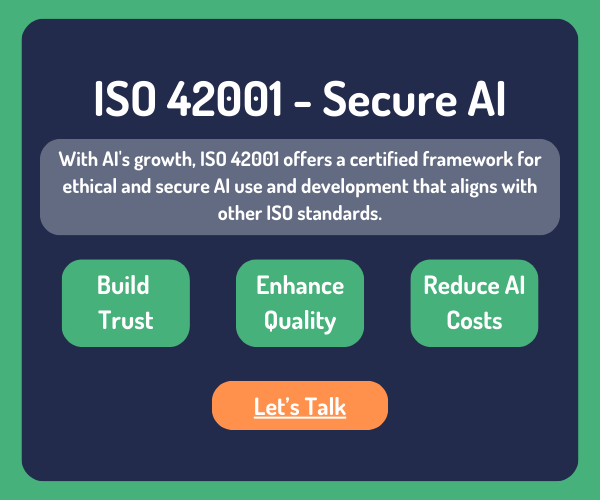In this article
Key Factors for Effective ISO 27001 Implementation
- Tom Rozen
- November 25, 2024

Implementing ISO 27001 can be a game changer for your organization, helping you safeguard sensitive information and ensure compliance with international standards. In this blog post, we’ll explore the key factors that contribute to a successful ISO 27001 implementation. We’ll break it down in simple terms so that you can take actionable steps toward enhancing your information security management system (ISMS).
What is ISO 27001?
ISO 27001 is an international standard for managing information security. It provides a framework for establishing, implementing, maintaining, and continually improving an ISMS. With ISO 27001, organizations can protect their data, enhance their reputation, and gain the trust of customers and stakeholders
Why is ISO 27001 Implementation Important?
Implementing ISO 27001 not only helps you comply with legal and regulatory requirements but also strengthens your organization’s security posture. It reduces the risk of data breaches, enhances customer confidence, and can even lead to a competitive advantage in the marketplace.
Key Factors for Successful ISO 27001 Implementation
1. Top Management Commitment
Successful ISO 27001 implementation starts at the top. Leadership should demonstrate commitment by allocating resources, setting clear objectives, and fostering a culture of security throughout the organization. When top management takes information security seriously, it sets a positive example for everyone else.
2. Establishing a Clear Scope
Define the scope of your ISMS clearly. This means identifying what information assets you need to protect and determining which parts of your organization are covered under ISO 27001. A well-defined scope helps you focus your efforts and ensures that your implementation is relevant and effective.
3. Conducting a Risk Assessment
A thorough risk assessment is vital. Identify potential risks to your information assets and evaluate their impact. This helps you prioritize security measures and allocate resources effectively. Remember, not all risks are created equal, so focus on the ones that could have the most significant consequences.
4. Developing Policies and Procedures
Create clear policies and procedures that outline how your organization will manage information security. This includes everything from access control to incident response. Ensure that these documents are accessible and communicated to all employees, so everyone knows their responsibilities.
5. Training and Awareness Programs
Training your staff on information security best practices is essential. Organize regular training sessions and awareness programs to ensure that everyone understands the importance of ISO 27001 and their role in maintaining security. Engaged employees are your first line of defense against security threats.
6. Regular Audits and Reviews
Implementing ISO 27001 is not a one-time effort. Conduct regular audits to assess the effectiveness of your ISMS and identify areas for improvement. This ensures that your organization stays compliant and can adapt to changing threats.
7. Continuous Improvement
ISO 27001 promotes a culture of continuous improvement. After your initial implementation, regularly review and update your ISMS based on audit results, feedback, and changes in the organization. This helps you stay ahead of potential security threats and maintain compliance.
FAQs about ISO 27001
What is an ISO 27001 Auditor?
An ISO 27001 auditor is a professional responsible for assessing an organization’s ISMS against the ISO 27001 standard. They conduct audits to determine whether the organization meets the requirements and identify any areas for improvement.
What is an ISO 27001 Audit?
An ISO 27001 audit is a systematic examination of an organization’s ISMS to evaluate its compliance with the ISO 27001 standard. The audit process includes reviewing documentation, interviewing staff, and assessing security controls.
What is involved in ISO 27001 Implementation?
ISO 27001 implementation involves establishing an ISMS, conducting a risk assessment, developing security policies, training staff, and undergoing regular audits. It’s a comprehensive approach to managing information security.
What does Consilium Labs offer in relation to ISO 27001?
As an accredited certification body, we offer comprehensive ISO 27001 audits. We specialize in helping organizations through ISO 27001 audits.With our long term expertise we reduce the audit scope, minimizing overhead while ensuring alignment with your business objectives.
The ISO 27000 family includes some of the world’s most well-known standards for information security management systems (ISMS). Key standards include ISO 27001, ISO 27701, ISO 27017, and ISO 27018, all designed to safeguard your organization’s information security.
Conclusion
Implementing ISO 27001 is a vital step in protecting your organization’s information assets. By focusing on top management commitment, clear scope definition, thorough risk assessments, robust policies, employee training, regular audits, and continuous improvement, you can unlock the full potential of your ISMS. If you’re looking for the right auditors on your ISO 27001 journey, Consilium Labs is here to help you every step of the way!
If you’re just starting out with ISO 27001, remember that it’s a continuous journey of improvement. By following these actionable tips, you’ll be well on your way to building a strong and certifiable ISMS.
For more information on how Consilium Labs can assist with your compliance needs, feel free to reach out. Let’s make your path to certification smoother and more efficient!
Related Articles
Let's get in touch
Start your audit now. Achieving cybersecurity audit can be complex. We have made it our mission to simplify the process, giving you access to the professional expertise you need to prepare your company for the future. Get in touch with us today!




